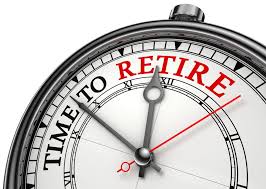Once you have examined your various responses to the loss, it is useful to try putting everything into perspective and prepare yourself for what lies ahead, accomplished through four tasks:
1. Accept the reality of the situation. Once the shock has passed, allow yourself to see the circumstance for what it is and accept the fact that you are laid-off, unpleasant as it may be, and even though you may be undeserving of such action.
2. Experience the feelings that result from the loss. First of all, you are entitled to all of the emotions you experience. No one is in a position to tell you what you should or should not be feeling. Give yourself permission and time to work through your changing emotions. The key here is to avoid the urge to deny or ignore this vital aspect of your response to the loss.
3. Adjust to the new reality. When it comes to involuntary job loss, there are usually some factors that are beyond your control (such as the labour market and the economy). This lack of power can be very frustrating.
Try to adjust to your situation by identifying the factors you can control (such as the actions you choose to take in response to your loss) and avoid the trap of dwelling on the things you are powerless to change.
Re-invest your energy. Turn your efforts into productive activities that support you on the road to better things, which may mean engaging in a period of self-exploration, to assist you in deciding what direction to take in the future.
Discovering ways to cope with your job loss is a necessary step to completing the healing process. For the unemployed person, this must take place on two levels – Personal and Professional.
Personal
It will be essential to activate some different coping strategies such as those listed below to regain a sense of control in your life:
– Set up a Support Network – see the “Developing a Support Network” blog page of this site.
– Set some personal goals – give yourself something to strive for
– Keep active – mind and body! Nutrition and fitness are essential to your well-being
– Redefine yourself outside work – engage in activities you enjoy, create a diversion
– Establish a routine – get up each day with a plan of action
– Increase your self-esteem – spend time on yourself
– Do things that make you feel good about yourself
– Laugh and cry – both activities release endorphins and can be very therapeutic, so don’t inhibit these responses
– Seek consultation – obtain professional help if you feel the need.
Professional
Before jumping into a job search, take the time to consider whether a career change is in order. You may also want to practice your answers when responding to tough job interview questions.
– Do some career planning – make some decisions about whether or not to make a career change. Take the time to examine trends in the labour market.
– Consider upgrading/retraining – use your time to develop yourself further.
– Network – continue to build your network.
– Get your resume professionally prepared with a credible resume writing service
– Plan a daily schedule – set goals each day and maintain a record of your activities.
– Develop a strategy – this will vary depending on whether you are planning a new business or finding a new job. Pace yourself.
© Wordscapes ® (David Turner). All Rights Reserved.




